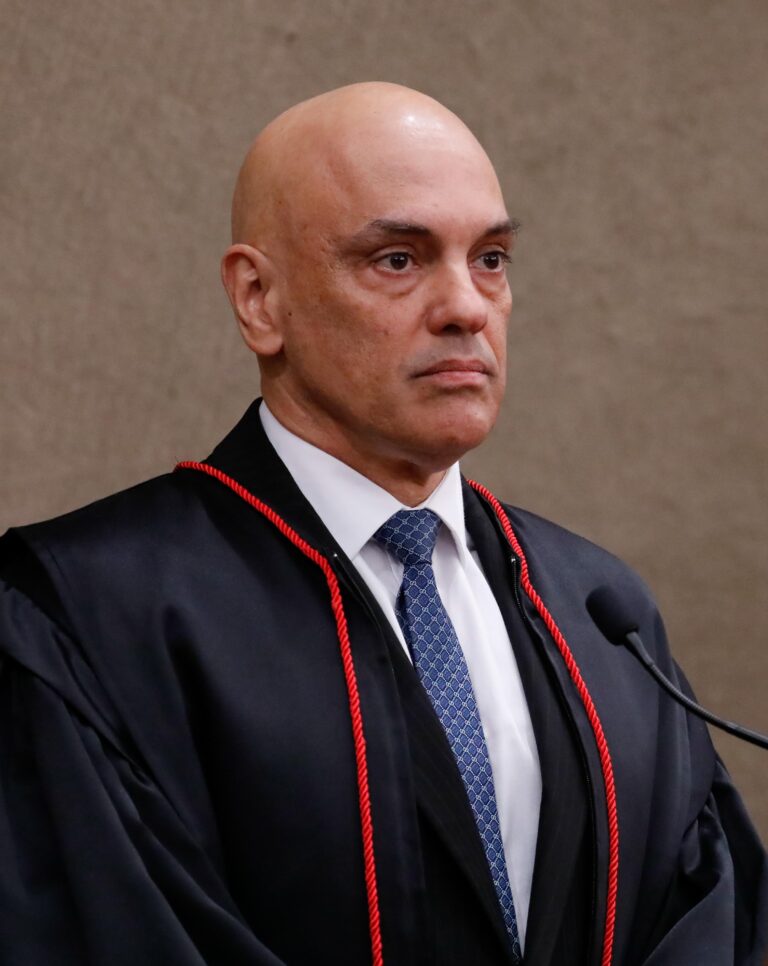U.S.-Brazil Relations Strained as Washington Brands Justice Alexandre de Moraes ÔÇťToxicÔÇŁ
WashingtonÔÇÖs Unprecedented Critique of Justice Moraes and Its Diplomatic Fallout
In a rare and striking diplomatic move, U.S. officials have openly described Brazilian Supreme Court Justice Alexandre de Moraes as ÔÇťtoxic,ÔÇŁ a characterization that has intensified existing tensions between the United States and Brazil. This sharp condemnation centers on MoraesÔÇÖ recent judicial rulings, which Washington argues undermine democratic principles and hinder bilateral cooperation. The statement has provoked strong reactions within Brazilian political circles, exacerbating an already fragile relationship marked by conflicting approaches to trade policies and regional security concerns.
The repercussions of this public criticism extend beyond mere rhetoric, impacting several critical areas of cooperation:
- Security Collaboration: Efforts in counter-narcotics operations and intelligence sharing risk significant setbacks.
- Trade Relations: Negotiations over tariffs and market access face potential delays amid rising diplomatic friction.
- Multilateral Coordination: Joint initiatives within organizations like the Organization of American States may suffer from reduced alignment.
In response, the Brazilian government has urgently called for diplomatic consultations aimed at de-escalating tensions, warning that prolonged hostility could jeopardize strategic interests vital to both nations.
| Dimension | Effect | Possible Consequence |
|---|---|---|
| Judicial Criticism | Heightened Diplomatic Friction | Erosion of Mutual Trust |
| Trade | Prolonged Negotiations | Economic Instability |
| Security | Reduced Intelligence Exchange | Increased Vulnerabilities |
Consequences for Bilateral Cooperation and Latin American Stability
The labeling of Justice Moraes as ÔÇťtoxicÔÇŁ has significantly strained the diplomatic rapport between Brazil and the United States, threatening to unravel years of strategic partnership. This diplomatic rupture risks undermining collaboration in vital sectors such as trade, security, and environmental protection, while casting a shadow over future negotiations. WashingtonÔÇÖs public denunciation may prompt Bras├şlia to reconsider its alignment with U.S. policies, complicating joint efforts to address transnational challenges.
Beyond bilateral concerns, the fallout could destabilize the broader Latin American region. Given the influential roles both countries play in the hemisphereÔÇÖs political and economic dynamics, diminished cooperation could create openings for other global powers to expand their influence, potentially disrupting regional equilibrium. Key areas vulnerable to impact include:
- Counterterrorism and Intelligence Sharing: Weakened collaboration may impair collective responses to organized crime and security threats.
- Economic Integration: Trade barriers and policy divergences could slow regional economic growth and cooperation.
- Environmental Initiatives: Diplomatic discord may stall critical efforts to protect the Amazon rainforest and combat climate change.
| Cooperation Area | Potential Ramification |
|---|---|
| Security Partnerships | Decline in intelligence sharing |
| Trade Agreements | Negotiation standstills |
| Environmental Policies | Reduced Amazon conservation efforts |
Examining Justice MoraesÔÇÖ Judicial Decisions and Their Diplomatic Repercussions
Justice Alexandre de MoraesÔÇÖ recent rulings have become a flashpoint in Brazil-U.S. relations, casting a shadow over diplomatic engagement. His decisions, particularly those concerning cross-border data investigations and cybersecurity regulations, have been viewed by U.S. officials as obstructive to cooperative efforts. MoraesÔÇÖ stringent stance on national sovereignty and data privacy is seen as a barrier to joint initiatives against transnational crime, contributing to his ÔÇťtoxicÔÇŁ label in WashingtonÔÇÖs eyes. This has further complicated diplomatic communications and bilateral negotiations.
The impact of these judicial rulings extends beyond legal frameworks, influencing BrazilÔÇÖs international relations strategy. Brazilian authorities now face the challenge of balancing judicial independence with the demands of strategic diplomacy. The table below highlights key decisions by Justice Moraes that have raised international concerns, along with their effects on diplomatic trust and intelligence cooperation.
| Judicial Decision | Issue Addressed | Effect on Brazil-U.S. Relations |
|---|---|---|
| Data Protection Enforcement | Limits on U.S. access to Brazilian data | Hampered joint cybercrime investigations |
| Restrictions on Extraterritorial Jurisdiction | Challenges to U.S. warrants applied abroad | Reduced legal cooperation on cross-border crimes |
| Encryption and Data Localization | Mandated local storage of sensitive data | Increased operational costs for U.S. firms |
- Diplomatic Tensions: The U.S. backlash highlights vulnerabilities in bilateral trust.
- Policy Adjustments: Brazil faces pressure to harmonize judicial autonomy with foreign policy objectives.
- Prospects for Dialogue: Future talks may seek frameworks that respect sovereignty while enhancing cooperation.
Approaches to Mitigate Conflict and Restore Bilateral Trust
Amid rising discord, it is imperative for Brazil and the United States to prioritize transparent and constructive communication to prevent further deterioration. Establishing dedicated bilateral dialogue platforms focused on mutual respect and openness can provide a structured environment to address contentious issues without escalating tensions. Encouraging exchanges across various levelsÔÇöfrom senior diplomats to cultural and academic representativesÔÇöcan foster understanding beyond political disagreements.
Concrete confidence-building initiatives can also play a pivotal role in mending relations. Recommended measures include:
- Creation of joint task forces targeting shared priorities such as trade facilitation and environmental protection.
- Regular diplomatic briefings to minimize misinformation and clarify policy positions.
- Coordinated public communications emphasizing shared goals and avoiding personal criticisms.
| Initiative | Purpose | Anticipated Result |
|---|---|---|
| Dialogue Platforms | Facilitate open communication | Reduce misunderstandings and misperceptions |
| Confidence-Building Actions | Reinforce mutual trust | Lower diplomatic tensions |
| Coordinated Messaging | Highlight common interests | Improve public and diplomatic perceptions |
Looking Ahead: Navigating the Future of Brazil-U.S. Relations
The recent controversy surrounding Justice Alexandre de Moraes has brought to light a deepening diplomatic rift between Washington and Bras├şlia, with significant implications for future cooperation. As both governments hold firm to their positions, the international community will be closely monitoring how this dispute influences the trajectory of bilateral relations. Effective management of this conflict will be crucial to maintaining collaboration on pressing regional and global challenges, including economic development, security, and environmental sustainability.







